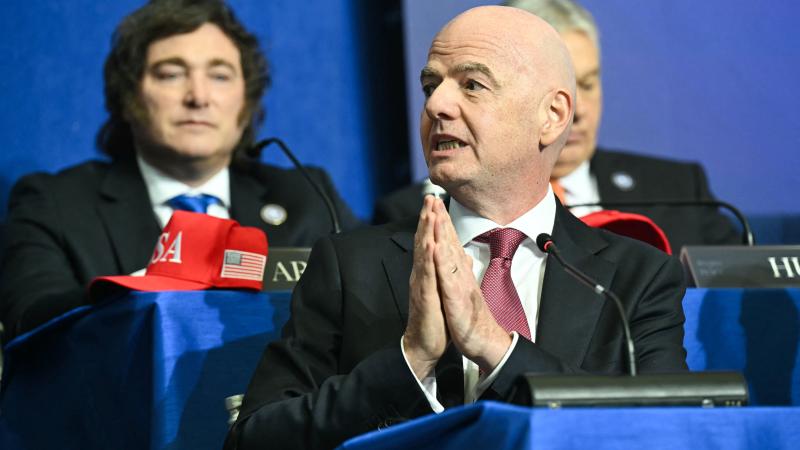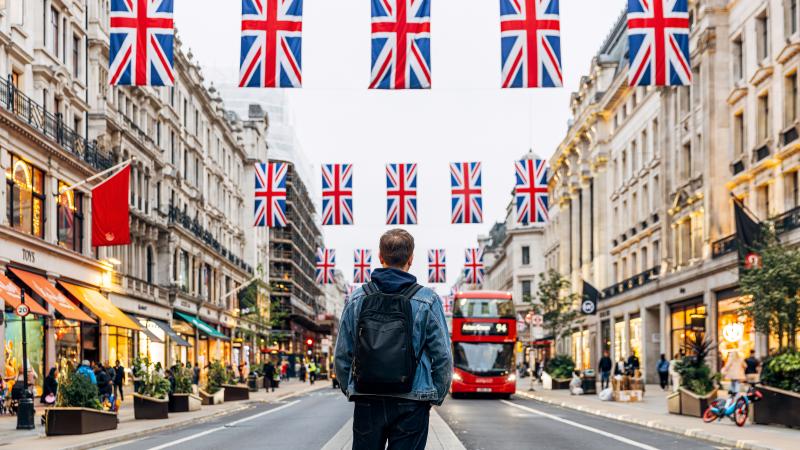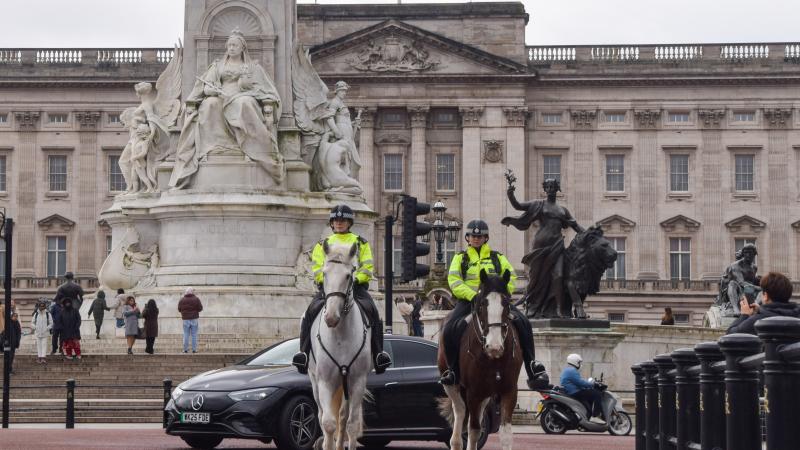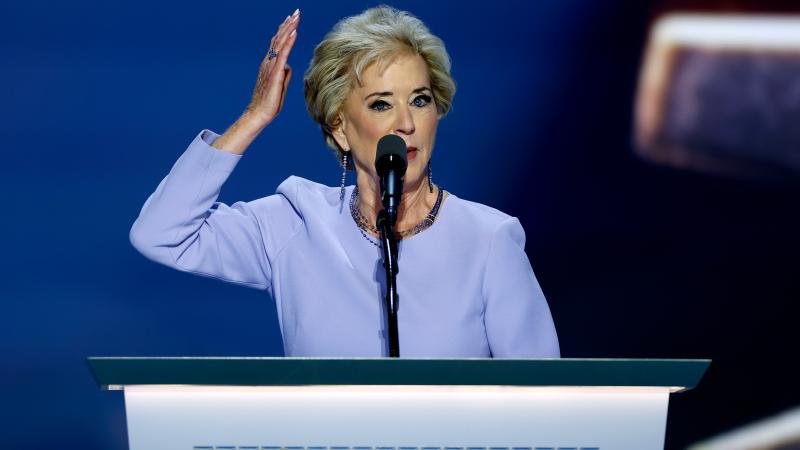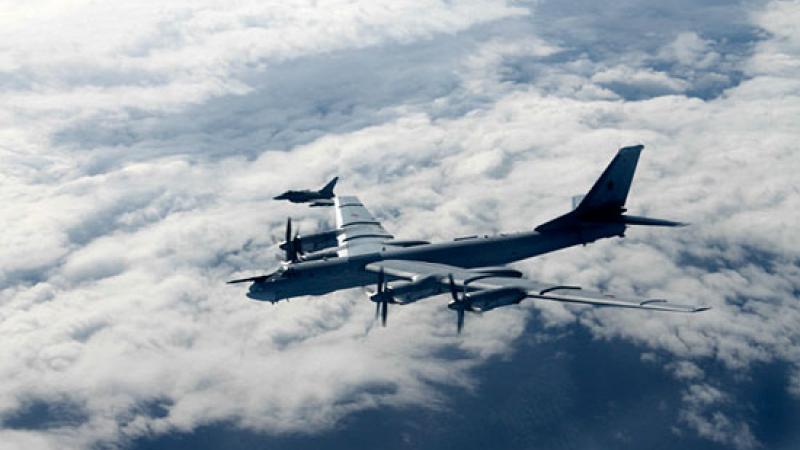G7 leaders in final meeting under Biden admin ponder return of Trump, threat of an emboldened Russia
Trump also vowed during his winning campaign to end the Russia-Ukraine war swiftly upon retaking the White House.
Foreign ministers from the Group of Seven countries spent much of their time this week during their final meeting of the year talking about the Russia-Ukraine War and trying to keep it in the international spotlight. But what they couldn’t do was figure out how Donald Trump returning as president of the United States will impact the years-long conflict.
Around a third of the sprawling final document from the ministers of the world’s seven main industrialized economies was directly or indirectly related to what they called “steadfast” support for the Ukrainian cause.
“Our ultimate goal remains to reach a comprehensive, just and lasting peace, capable of restoring full respect for the fundamental principles of international law, blatantly breached by Russia,” the leaders from Canada, France, Germany, Italy, Japan, the U.K. and U.S. said in the final statement,and last meeting of the Biden administration.
The trouble is nobody is sure how Trump’s return to power in less than two months will impact the Ukraine war. Trump vowed to quickly end the conflict once he takes office by forcing Ukraine to capitulate. He has also mocked Ukraine leadr Volodymyr Zelensky for repeatedly coming to Western leaders with hat in hand.
“Every time he comes to our country he leaves with $60 billion,” Trump said during his campaign, referring to U.S. aid to Ukraine. “He just left four days ago with $60 billion, and he comes home and announces he needs another $60 billion.”
Trump also vowed during his winning campaign to end the Russia-Ukraine war swiftly upon retaking the White House.
However, Zelensky says he called Trump days after his Nov. 5 presidential win to congratulate him. And Trump acolyte-turn-Trump administration member Elon Musk reportedly was on the call.
But the Trump transition team has not confirmed the call. So it remain unclear whether the president-elect has changed or perhaps softened his position and what impact, if any, billionaire entrepreneur Musk will have on the matter.
Another factor is that at least some congressional Republicans want to continue to provide military and other aid to Ukraine, to protect a democratic state from falling to a Communist-run country. And they could demand continued U.S. support as a negotiating tool with Trump and his requests from them.
On top of all of that, Trump in his first term had what was jokingly referred to as a “bromance” with Russia’s Vladimir Putin, Zelensky’s nemesis.
It’s enough to strike fear into the hearts of many European leaders and military experts, fear that Putin, if emboldened by a victory in the 30-month-old conflict with Ukraine, might turn his sights to the west, to Moldova, Romania, or Poland, or perhaps to one of the Baltic states, Latvia, Lithuania, or Estonia.
With the exception of Moldova, all those countries are members of the NATO alliance, but with Trump in the White House, that doesn’t mean what it used to mean: Trump has vowed to dramatically reshape NATO and has said the U.S. wouldn’t necessarily come to the aid of alliance members if they were attacked.
For their part, European leaders talk the talk when it comes to supporting Ukraine as evidenced by the last statement from the G-7 – four of the group’s seven members are in Europe: France, Germany, Italy, and the U.K.– but when it comes to concrete and sustained action, they remain divided.
Hungary’s Viktor Orban is still the most pro-Putin voice in the European Union, and it is not clear the extent to which some pro-Ukraine European leaders – Italy’s Giorgia Meloni comes to mind – might change tactics that meant getting closer to Trump.
Additionally, it would be hard for slow-growing European economies to make up for a withdrawal of U.S. support for Ukraine, and even if they could, they lack the arms production capacity to fully supply Ukrainian forces on their own.
“We’re in deep shit,” retired Belgian General Marc Thys commented on the topic last year, saying it would take five to seven years for European arms production to become a credible deterrent.
Thys also said Europe had become soft by relying on the U.S. security umbrella for so long. “Ammunition is a symptom of a cultural problem within Europe,” the general said.
Still, there are factors that might give some solace to worried Europeans.
First, there are signs that the Trump-Putin “bromance” might be on the rocks amid awareness that a too-powerful Putin may threaten U.S. influence in the world.
“If Trump can’t achieve a quick solution to the Ukraine war, he could well turn on Putin and increase U.S. support to Ukraine,” opined the Lowy Institute, a non-partisan think tank from Australia.
But the biggest reason European leaders may ultimately have less to fear from Putin is because of the tragic toll the war has taken on his country.
As of late November, estimates are that Russia lost nearly 750,000 troops in the war (to put that in perspective, that is far more than the U.S. lost in both world wars, Korea, Vietnam, and the post-Sept. 11 conflicts – combined), plus nearly 10,000 tanks and more than 20,000 artillery systems. Economic sanctions have also wrecked the Russian economy, sending the ruble tumbling.
“Though the Kremlin espouses consistent hostility toward NATO, it appears to realize that it could not achieve its goals toward the west through direct military force,” said a recent report from The Quincy Institute, a U.S. geopolitical policy think tank.
The Facts Inside Our Reporter's Notebook
Links
- sprawling final document
- seven main industrialized economies
- Trump vowed to quickly end the conflict
- Every time he comes to our country he leaves with $60 billion
- a âbromanceâ with Russiaâs Vladimir Putin
- Putin, if emboldened by a victory in the 30-month-old conflict with Ukraine, might turn his sights to the west
- Trump has vowed to dramatically reshape NATO
- when it comes to concrete and sustained action, they remain divided
- Viktor Orban is still the most pro-Putin voice
- Italyâs Giorgia Meloni comes to mind
- slow-growing European economies
- Weâre in deep shit,â retired Belgian General Marc Thys commented
- the Trump-Putin âbromanceâ might be on the rocks
- he could well turn on Putin and increase U.S. support to Ukraine
- Russia lost nearly 750,000 troops
- more than the U.S. lost in both world wars, Korea, Vietnam, and the post-Sept. 11 conflicts
- Economic sanctions have also wrecked the Russian economy
- it could not achieve its goals toward the west through direct military force
